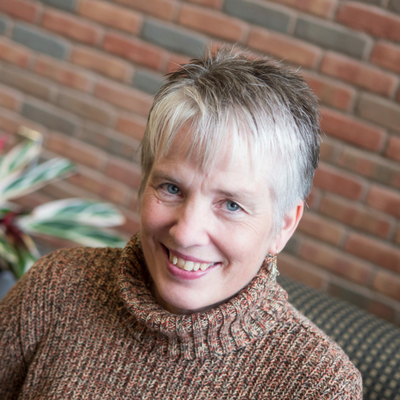South Africa
Welcome to CGEE in South Africa! Located on the southernmost tip of the African continent, South Africa is one of the most multicultural countries in the world, with eleven official languages and as many different ethnic groups, particularly in urban areas. It also has three capitals: Cape Town is the legislative capital, Pretoria is the administrative capital, and Bloemfontein is the judicial capital. South Africa is also diverse ecologically with several distinct ecosystems. Inland national parks are populated by big game. The Western Cape offers beaches, vineyards, craggy cliffs, forest and lagoons. The city of Cape Town lies beneath flat-topped Table Mountain.
Despite its incredible natural beauty and the warm hospitality of its people, South Africa is a country with enormous resources but also vast inequality and poverty. Twenty-three years after the end of the repressive apartheid regime, the government has made significant efforts to build homes and supply basic services to millions of people, however, they have been unable to meet the demand. Many South Africans live without basic necessities and healthcare is often rudimentary.
When you plan a program with CGEE, you will get an inside glimpse of this fascinating country and learn from the local people, community experts and organizations that are committed to improving and strengthening their communities and their country. Take a moment to review a sampling of our program themes and the amazing locations available to you. Once you have selected a topic or two that you are interested in, contact CGEE staff via email or phone to discuss your interests. We will work with you to develop a customized itinerary for your next program.
Need to ask us some questions first? Submit an inquiry.
Ready to start customizing? Begin your application now!
Popular themes in South Africa include (but are not limited to):
* Apartheid
* Climate change
* Decolonization of the mind
* Education
* Environmental/sustainability issues
* Ethnicity
* Globalization
* Health
* HIV/AIDS
* Human rights
* Nation building
* Politics
* Race relations
* Reconciliation
* Ubuntu
* Women/gender issues
* Apartheid
* Climate change
* Decolonization of the mind
* Education
* Environmental/sustainability issues
* Ethnicity
* Globalization
* Health
* HIV/AIDS
* Human rights
* Nation building
* Politics
* Race relations
* Reconciliation
* Ubuntu
* Women/gender issues
Johannesburg: Johannesburg is the largest city in South Africa and one of the largest urban areas in the world, established in 1886 following the discovery of gold on what had been a farm. The population today is estimated to be 4.4 million. Johannesburg is located in the province of Gauteng and is the seat of the Constitutional Court.
Soweto: A separate city from the late 1970s until 1994, Soweto is now part of Johannesburg. Originally an acronym for "South-Western Townships", Soweto originated as a collection of settlements on the outskirts of Johannesburg, populated mostly by African workers from the gold mining industry. Its sprawling Soweto township was once home to Nelson Mandela and Desmond Tutu. Mandela’s former residence is now the Mandela House museum. Other Soweto museums that recount the struggle to end segregation include the Apartheid Museum and Constitution Hill, a former prison complex.
Durban: Durban is a coastal city in eastern South Africa’s KwaZulu-Natal province, is known for its African, Indian and colonial influences. Refurbished for soccer’s 2010 World Cup, the seafront boulevard runs from uShaka Marine World, a huge theme park with an aquarium, to the Moses Mabhida Stadium. The Durban Botanical Gardens contains a huge variety of African plant species.
Cape Town: Cape Town is a port city on South Africa’s southwest coast, on a peninsula beneath the imposing Table Mountain. Visitor can climb to take cable cars to the mountain’s flat top, from which there are sweeping views of the city, the busy harbor and boats heading for Robben Island, the notorious prison that once held Nelson Mandela, which is now a living museum.
Check out a list of activities we can do. This checklist can also help you customize your program to your group's goals and interests. Anything you like to do that's missing? Let us know and we can add it to your custom itinerary.
Need some ideas of what you can do? View our sample programs that show possibilities in different themes! Use a sample program as a building block and then customize from there to fit your organization's needs.
Sample programs:
Decolonizing the Mind (this program visits both South Africa and Namibia)
Democratic Transition and Social Justice
Race, Civic Engagement, and Nation Building (this program visits both South Africa and Namibia)
Need some ideas of what you can do? View our sample programs that show possibilities in different themes! Use a sample program as a building block and then customize from there to fit your organization's needs.
Sample programs:
Decolonizing the Mind (this program visits both South Africa and Namibia)
Democratic Transition and Social Justice
Race, Civic Engagement, and Nation Building (this program visits both South Africa and Namibia)
Costs will be unique to the programming activities you choose for your program, the number of participants, the length of the program, etc.
The prices below represent the typical per person cost for an 8-day/7-night program in South Africa. Price can decrease when costs can be shared among a larger group of participants. These prices include one free leader, and do not include the cost of airfare.
| Destination | 10 Participants | 12 Participants | 15 Participants | 18 Participants |
| South Africa | $2,425 | $2,300 | $2,150 | $1,865 |
Questions about South Africa custom programming? Contact Peggy Johnson at:

Email: johnsop2@augsburg.edu
Phone: 612-330-1118
Ready to start customizing with CGEE in South Africa? Start an application today!
Email: johnsop2@augsburg.edu
Phone: 612-330-1118
Ready to start customizing with CGEE in South Africa? Start an application today!
